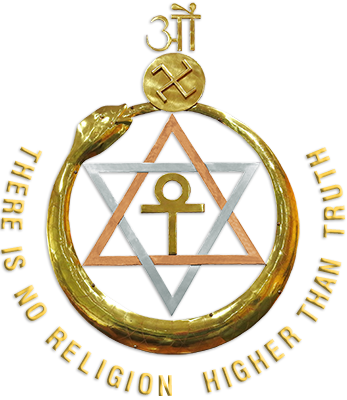Canberra Group
Meets third Saturday of each month from 2 to 4pm
Coordinator: Gordon Herbert
Mobile: 0466 464 064
Postal Address: 9 Backhouse Street, Latham, ACT 2615
Email: tscanberra2600@gmail.com
Bulletins: Current and previous Bulletins from the Canberra Group can be viewed at: Canberra Group Bulletins
Meeting place: Friends' Meeting House, 17 Bent Steet, Turner (on the corner of Bent and Condamine Streets)
Meet: 2 - 4 pm 3rd Saturday each month.
2026 Programme
2.00pm Saturday 21 February
Topic: The Gospel of the Beloved Companion (GBC)
Presenter: Terry Curtin
About the Presentation
“Shimon Kefa (Peter) said to the Migdalah (Mary Magdalene) “Sister we know that he loved you more than any other among women. Tell us the words of the Rabbi (Jesus) which you remember, which you know and understand, but we do not, nor have we heard them”. GBC 41:5
“The Migdalah answered and said “What is hidden from you I will proclaim to you” GBC 42:1
Mary Magdalene’s account of Jesus’s (i.e. Yeshua the Rabbi’s) life, teachings, and their partnership is presented in the GBC. After his death she became a prominent leader in the early Christian movement. She clashed with Peter who reflected the dominant patriarchal view that women should remain silent in church. The Catholic Church has now acknowledged that Mary Magdalena was the spiritual leader of the 12 disciples, saying that she was “an apostle to the apostles”. Jesus called Mary “the Migdalah” as it means a “watchtower, fortress” i.e. a tower of strength!
This presentation uses six randomly chosen Tarot cards. It will (i) look at the 13th Cathar community which treasured the GBC and its conflict with Papal authority, (ii) realize the critical “Now” moment of the GBC, (iii) reflect on the Spirit, whose message Yeshua came to proclaim, notably the Divine Oneness, (iv) note the death of our institutions but also the dawning of new life together with the conviction that never has the darkness overcome the light, (v) acknowledge Divine Wisdom, the maternal partner figure of God who had manifested as Mary, the Migdalah, the Beloved Companion of Jeshua and (vi) Mary, blinded and restrained by male hierarchical forces, hoping for and sensing rescue.
About the Presenter
Terry Curtin underwent a profound change in his understanding of the Christian message, that he describes in an essay in 2025 entitled “Adult Christianity” *. After training for the Catholic priesthood, he became disillusioned with its narrowness and moved away from the conventional Irish Roman Catholic viewpoint. He now believes that Christianity can only be genuinely beneficial if it restores the feminine voice that has long been silenced. A fundamental starting point, in his view, is the gospel of Mary Magdalene in its complete form known as the Gospel of the Beloved Companion.
Swiss psychologist Carl Jung's ideas about the soul shaped Terry’s outlook. Also important was Jung’s insightful understanding of gnostic Christianity, his acknowledgement of the value of the Tarot and the esoteric Jewish theology/cosmology known as the Kabbalah.
Alongside his career in the Commonwealth Public Service and private enterprise, Terry gained considerable experience working as a Catholic layperson and a transpersonal counsellor. His qualifications include: BA in Psychology and Political Science (1967), B Theology (1992), MA Theology (2001), Diploma in Transpersonal Counselling (2006).
2.00pm Saturday 21 March
Topic: A Union of Lovers: Theosophy's Path of Practical Service
Presenter: Leo Ta
About the Presentation
Beyond personal emotion, what if love is a cosmic force? What if our feeling of separation is an illusion? This presentation explores the Theosophical principles of universal love and the unity of life. See how these core truths inspire the work of the Theosophical Order of Service (TOS), a global movement of practical compassion. This talk is a powerful call to action for anyone who wishes to transform high ideals into heartfelt service.
About the Presenter
Leo Ta is currently a business owner in the education and legal services sectors and joined the Theosophical Society in February 2022. Her introduction to Theosophy was through the teachings of J. Krishnamurti, which set her on a path of spiritual discovery. This journey has led her to visit the TS International Headquarters at Adyar, India, the International Theosophical Centre (ITC) in Naarden, the Netherlands as well as other lodges and sections around the world. These experiences have profoundly broadened her understanding and connection to the global Theosophical community. Currently, Leo serves in several key roles within the Society, including as the Vice President of the Blavatsky Lodge in Sydney, the President of TOS Sydney, the Convention Secretary, and the National Youth Coordinator for TS Australia. She is also a Board Member of the World Federation of Young Theosophists.
2.00pm Saturday 18 April
Topic: OM: Transcending the Self
Presenter: Wendy Dixon
About the Presentation
In the Secret Doctrine H. P. Blavatsky references the great Mandukya Upanishad several times with regards to the “Omniscient, Eternal, Boundless, and Immutable Principle” established in the First Fundamental Proposition. A mere 12 verses long, the Mandukya delineates the four stages of waking, sleeping, deep sleeping and transcendental consciousness. It uses the Sanskrit mantra Om in the spelling AUM to assist us in integrating this into our lives.
About the Presenter
Dr Wendy Dixon is a long-term member of the Theosophical Society, joining the youth group in Auckland as a 12-year-old and becoming a member at 16. She studied with Geoffrey Hodson and Charles Marresh. She is a devotee of the foundational works of Madame Blavatsky, Besant, Leadbeater, Hodson, Krishnamurti and Taimni in particular. In her earlier life, Wendy had an international career as an operatic soprano soloist and she still performs as a recitalist with David Miller - piano. Now that she has retired from paid work, she divides her time between Theosophical, Tibetan Buddhist and musical activities.
* Soon to be available on line via a Canberra Group email link




